GANG VIOLENCE & FORGIVENESS WITH PETER DESOTO | E007 PODCAST
LISTEN TO THIS EPISODE ON ALL STREAMING SERVICES
ABOUT THE GUEST
Peter DeSoto sits down with George Stroumboulis on the Invigorate Your Business Podcast.
Peter DeSoto was living in El Salvador in 2007 with his family, serving as missionaries. When he was traveling to a project in the far east of the country, a masked shooter attacked his caravan and filled his truck with bullets. One bullet hit him in the neck and lodged in his esophagus. Not only did he survive, but he also came back to meet his shooter to forgive him in person.
Since then, he has invested in El Salvador in various properties and has been part of the team that created Bitcoin Beach. Revolutionizing how El Salvadorians earn, save and invest in Bitcoin as it has become the nation’s national currency.
Peter resides in San Diego, California with his family. He works in the lighting industry as an executive sales manager and business leader. Stay connected with Peter via his social media channels and read his story in his book, Shot.
INSTAGRAM: https://www.instagram.com/pdesoto/
LINKEDIN: https://www.linkedin.com/in/peterdesoto/
FACEBOOK: https://www.facebook.com/peter.desoto
AMAZON: https://www.amazon.com/Shot-couple-country-stubborn-quest-ebook/dp/B071JQK5LF
BITCOIN BEACH: https://www.bitcoinbeach.com/
“The first bullet hit and pierced my throat, and the other bullets, by the grace of God, I slammed on the gas instead of the break and if I’d hit the break, I’d be dead because I would have had multiple bullets in the head.”
MEDIA RELATED TO THE EPISODE
Peter DeSoto sits down with George Stroumboulis on the Invigorate Your Business Podcast to talk about all things gang violence, forgiveness, bitcoin, surfing and life.
George Stroumboulis sits down with Peter DeSoto in the Newport Beach, California studio to talk about all things business, forgiveness, bitcoin, publishing and so much more.
Peter DeSoto teaches us the ultimate meaning of forgiveness - being shot in the neck by a gang member and returning to El Salvador to forgive him in person.
George Stroumboulis chatting with Peter DeSoto.
ABOUT THE “INVIGORATE YOUR BUSINESS” PODCAST
The Invigorate Your Business with George Stroumboulis podcast features casual conversations and personal interviews with business leaders in their respective fields of expertise. Crossing several industry types and personal backgrounds, George sits down with inspiring people to discuss their business, how they got into that business, their path to the top of their game and the trials and tribulations experienced along the way. We want you to get inspired, motivated, and then apply any advice to your personal and professional lives. If there is at least one piece of advice that resonates with you after listening, then this podcast is a success. New episodes weekly. Stream our show on Spotify, YouTube, Apple, Amazon and all other platforms.
ABOUT GEORGE STROUMBOULIS
George Stroumboulis is an entrepreneur to the core, having launched several ventures across multiple industries and international markets. He has held senior-level positions at progressive companies and government institutions, both domestically and internationally, building an extensive portfolio of business know-how over the years and driving profit-generating results. George’s ability to drive real change has landed him in several media outlets, including the front page of the Wall Street Journal. George was born in Toronto, Canada to his Greek immigrant parents. Family first. Flying over 300,000 miles a year around the world puts into perspective how important family is to George’s mental and emotional development. With all this travel to global destinations, the longest he stays even in the most far-out destination is 3 days or less - a personal rule he lives by to make sure he is present and involved in family life with his wife and three daughters. To read about George’s global travels, stay connected with his blog section.
STAY CONNECTED WITH GEORGE STROUMBOULIS
STREAM & LISTEN TO THE PODCAST:
SPOTIFY: https://open.spotify.com/show/1rW2CmxQoiJNEPOZupJlvd
YOUTUBE: https://www.youtube.com/user/Stroumboulis
APPLE iTUNES: https://podcasts.apple.com/us/podcast/invigorate-your-business-with-george-stroumboulis/id1607693240
AMAZON MUSIC: https://music.amazon.com/podcasts/8fc03929-71b3-483a-a64e-153e30b3d462/invigorate-your-business-with-george-stroumboulis
iHEARTRADIO: https://www.iheart.com/podcast/269-invigorate-your-business-w-92187370/
STROUMBOULIS SITE: https://www.stroumboulis.com/podcast
PODCAST SITE: http://www.invigorateyourbusiness.com
OTHER SERVICES: GOOGLE, PANDORA, OVERCAST, CASTRO, CASTBOX, PODFRIEND, PLAYER.FM, PODCASTADDICT, PODCHASER, PODCASTINDEX and RSS FEED.
FOLLOW GEORGE STROUMBOULIS:
INSTAGRAM: https://www.instagram.com/georgestroumboulis/
YOUTUBE: https://www.youtube.com/user/Stroumboulis
LINKEDIN: https://www.linkedin.com/in/Stroumboulis/
TWITTER: https://twitter.com/Stroumboulis
FACEBOOK: https://www.facebook.com/georgestroumboulis
TIKTOK: https://www.tiktok.com/@georgestroumboulis
CONTACT GEORGE DIRECTLY: https://www.stroumboulis.com/connect
FULL SHOW TRANSCRIPT
George Stroumboulis: Today, I sit down with a business leader who will teach us what it really means to forgive. Peter Desoto was shot in the throat and left for dead in the jungles of El Salvador while doing his mission. Since then, he's returned, forgave the person who shot him, built a successful sales business here in the United States, and is part of some exciting projects taking place back in El Salvador related to Bitcoin. Enjoy this episode with Peter Desoto in the business of forgiveness. My name is George Stroumboulis and I’m extremely passionate about traveling the world, meeting new people and learning about new businesses. Join me, as I sit down with other entrepreneurs to learn about their journeys. This episode of Invigorate your Business starts now.
Peter DeSoto: Okay.
George Stroumboulis: And there's a lot we're going to jump into, today. And again, I do appreciate you coming to join us and sitting down. We go back several years. Your story is remarkable. How we met and what we do is not as exciting, but the story is pretty spectacular. So, Pete Desoto met, in the lighting space. So, we're both in the lighting industry, from the sales, distribution, manufacturing side. And that's kind of where we built our relationship.
Peter DeSoto: Yeah.
George Stroumboulis: And the more we got into it, you know, you start learning about your background and everything and then, you know, the book and your story and-- we're going to get into everything. So, welcome on to the show.
Peter DeSoto: Thanks, man. You heard my voice.
George Stroumboulis: Yeah.
Peter DeSoto: That was the first take. Right?
George Stroumboulis: That's the first take. So, I guess the first thing, when I first met you, it was, ‘what's wrong, did this guy have a late night?’
Peter DeSoto: Yeah.
George Stroumboulis: You know, was he screaming? What's going on? And it's that and you hear that every day. So, why do you talk like that? Like, what's going on?
Peter DeSoto: Well, yeah, I have a number of stories, just depending on how much time I have. So, you know, it's either ‘I was at a concert, I screamed too long’ or ‘Ice cream’ to my kids. You know, and with Covid, it was a lot of fun because I had to like, say, ‘hey, I don't have Covid.’ And they’re like, ‘Ahaan.’
George Stroumboulis: Everyone’s paranoid.
Peter DeSoto: But then, you know, later, because it's been a while, it's been a number of years. Lately, I just drop it. Like, people will be like, you know, ‘what's wrong?’ ‘I got shot in the neck’ and the expressions that people have—
George Stroumboulis: I mean you got shot in the neck.
Peter DeSoto: When you’re just like dead band drop.
George Stroumboulis: Yes.
Peter DeSoto: I got shot in the neck. It's so out of context.
George Stroumboulis: Yeah.
Peter DeSoto: That usually puts people back. So, the best is at Starbucks, when they've joked about it or actually at a Pizza restaurant like two months ago, the guy was giving me a hard time, didn't know the story. And so, I finally turned because first time, it was fine but like, the third time—
George Stroumboulis: Oh, he kept on.
Peter DeSoto: He kept on like, joking about like, you know, my voice and, you know, was I screaming too much or… and I just turned and I just said, ‘yeah, I got shot in the neck.’ He spent the next half an hour apologizing, we didn't pay for the pizza. So, you know, it can actually turn out good, get free food and—
George Stroumboulis: Yeah, exactly. Exactly. Well, you say you got shot in the neck and that's a loaded statement, but I’ve been on a conference call when I first met you and someone on the phone, it was several years ago, made a comment like that and I already knew the story. And for me, at the time, it's like, ‘dude, don't be an asshole, like, don't even comment if something seems off’, but walk us through the story. We're going to get into work, we're going to get into, you know, the business side of it. It is a business related podcast. But just walk us through, you got shot. What does that mean? How did it happen? Like, where were you?
Peter DeSoto: Yeah, so, we… so, when we met in lighting, I had worked for a lighting company. Same one I work for now, for a few years.
George Stroumboulis: Right.
Peter DeSoto: But I’ve always been interested in like, economic development work around the world. That's what I got in school for. So, I had a friend who had done some really cool work down El Salvador, and I went down, 2003, to check out the work, the projects they were doing. And, you know, no real intentions, just to see it. They have great waves down there, so I got some surfing and it was beautiful, beautiful country. But just the next couple years, really was kind of haunted with a desire to be a part of it on a more full-time basis. So, in 2005, my wife, and by that time we had four kids, moved down there.
George Stroumboulis: Wow.
Peter DeSoto: And joined this team. The name of the organization was called Inlosse and they worked in communities and churches, doing projects from water to housing and economic development, and one of the projects they did was a medical clinic. And actually, the company that I was with, gave us money to build it. So, it was kind of this really cool thing where my past work was helping with the business that it was Regency Lighting. And so, we built this medical clinic, and I was up there with our construction team and our video team to kind of check on it and on the way back down the hill, we had two cars, we were coming down and you had to cross two rivers. It was like Indiana Jones type location, way up in the hills. I came around a corner and I hear this screech and the scream and a guy jumps out on the left side and he has face mask on, and points the gun in my head and just starts shooting.
George Stroumboulis: Not a warning, just start—
Peter DeSoto: Just starts shooting. So, the first bullet hit and pierced my throat, and the other bullets, by the grace of God, I slammed on the gas instead of the break and if I’d hit the break, I’d be dead because I would have had multiple bullets in the head. But shot around us, luckily, missed everybody else in the car. There was another shooter that was shooting as well. So, you know, at first, I knew I was hit. Felt like I just got, you know, thumped. Yeah…
George Stroumboulis: You knew right away when that bullet came, you—
Peter DeSoto: Well, I mean it's so shocking, right? I mean, you're driving and within split seconds, this has all happened and, you know, you go, you grab your throat and it's burning but, you know, you also-- because it started bleeding but it missed the jugular by a centimeter, just the way I was turned and it missed the trachea by a centimeter had it hit either one, I’d be gone. So, I grabbed it and got out of the car and the other car that was in our caravan came up and there was still… we still were hearing shots, so I get out and I yell at them, you know, holding my throat to get down, because everybody else in our car, they're in shock and on the ground and—
George Stroumboulis: Was anything coming out when you were yelling?
Peter DeSoto: It was bleeding but that's how I knew that I had a chance because I mean, had it been your jugular, it would have been…
George Stroumboulis: Done.
Peter DeSoto: Yeah, done. So, yeah, I just got down on my knees and prayed and thought this was it.
George Stroumboulis: While there's a bullet, while you're bleeding…
Peter DeSoto: Yeah.
George Stroumboulis: Right? You still get out of the car to go out to make sure they're okay and to warn them, when you're getting out, was voice coming out of your…
Peter DeSoto: Yeah, I screamed at them.
George Stroumboulis: You screamed, so you could do that?
Peter DeSoto: At the time, yeah.
George Stroumboulis: At the time.
Peter DeSoto: I mean, as loud as I could.
George Stroumboulis: So, I mean, just to paint this picture, you're in El Salvador, third world country. You're there to do God's work, missionary work. You're in this caravan and coming down the mountain, borderline, jungle, was it?
Peter DeSoto: Oh, 100 percent jungle, yeah.
George Stroumboulis: You get ambushed, shot in the throat and where do you go from there? Like, medical attention. And, you know, we're going to put the links up and everything and we'll plug it at the end but this story's outlined in this book, ‘Shot.’
Peter DeSoto: Real, real innovative title, right?
George Stroumboulis: Yeah. ‘Shot.’ Right. So, it took several months to come up with that title but the story is incredible and then the photo on the back is essentially around the same time.
Peter DeSoto: It was five years after.
George Stroumboulis: Five years after?
Peter DeSoto: Yeah.
George Stroumboulis: So, you're in El Salvador with four young kids, doing this. You're shot, you're in the jungle, medical attention.
Peter DeSoto: Yeah.
George Stroumboulis: Where do you go from there? Like, what happens?
Peter DeSoto: I mean, that's when you-- I mean, people have different approaches to faith but it was probably the most real experience of seeing God's hand take over because I mean, you can't control it and, you know, I’m a pretty much a, you know, driving person where I always want to be in control.
George Stroumboulis: Yeah.
Peter DeSoto: But you're shot in the neck on the side of the road, you can't do anything. So, you know, we got back in the car, drove down the hill. They wanted to take me to, you know, hospital, it's like an hour and a half away and I knew I couldn't.
George Stroumboulis: Driving?
Peter DeSoto: Yeah. So, I told our driver, you know, get me to a clinic. They got me to a clinic. At the clinic, there they weren't prepared for anything like this.
George Stroumboulis: Sure.
Peter DeSoto: So, it was both tragic but, you know, almost Monty Python type comedy as well, because they had me stand up to take my x-rays, walk over almost like a prison mug shot and to kind of take the picture and then just did adrenaline got all of it. I just kind of took over, I started telling the team who was completely in shock who to call, what to do. Called a buddy at the embassy, called my friend that ran the non-profit, called, told him to call the church back home and start praying. So, people started making phone calls and then I told them I got to get back to San Salvador because I knew the hospital that I needed to be at, that had good doctors. So, all that started happening but it took time. It took about three hours, and they're able to locate helicopter through the contact at the embassy but when they came out, there's only like, three in the country. So, it's an old Huey that we had given to El Salvador during the wars of the 80s and 90s.
George Stroumboulis: Well, that’s the irony of that.
Peter DeSoto: It was a trip. So, they had to land it but there was nowhere to land it in the jungle, so the closest place was a high security prison but they had been having riots, so they had to shut down the prison, coordinate with the warden and land this Huey to come pick me up. So, they get me out and I’m seeing all these like, families because it was visitors’ day, watching me being wheeled to the Huey. And for whatever reason, like, I held up peace signs because it was like, mash came into my head-- that's what you do. You just—
George Stroumboulis: But meanwhile, in El Salvador, that's a gang sign and they're trying to—
Peter DeSoto: It might have been. Might have just pissed off like—
George Stroumboulis: Right.
Peter DeSoto: And then, you know, the helicopter takes off and literally, everybody else's, their seatbelt is buckled in.
George Stroumboulis: Yeah.
Peter DeSoto: They didn't do that to me. So, we start taking off, sideways. I start rolling out, and I’m literally thinking like, I’m going to… I made the shooting, I got to the helicopter, I’m going to fall into some poor lady's backyard and die, you know, out of the helicopter, but we made it back to San Salvador to the hospital, de Diagnostico and they did all the tests and the bullet had launched in the esophagus.
George Stroumboulis: So, it was still lodged in when you're there.
Peter DeSoto: Still lodged in. And nine hours later, they went in and before they took it out, just for good measure, we had an earthquake that shook the entire hospital. Like, I think it was like, a 6.2 earthquake. But they took out the bullet and I was in the hospital for two weeks and the first few days, I was actually talking okay.
George Stroumboulis: Like you were pre-shot?
Peter DeSoto: Yeah, like pre-shot.
George Stroumboulis: Okay.
Peter DeSoto: But somewhere between either the tests or the swelling or somehow the voice started to deteriorate when I got out of the hospital, within like four weeks, I would start choking, and they found that part of my shirt had gone in with the bullet, so they had to go back in and take the shirt out because it was like, it navigated into my trachea. So, it was… yeah, it was obviously super wild story but then the ultimate kind of like lasting injury is vocal cords that are both paralyzed, one completely. And I just went in like a month to go to ucsd to check on it again because I did a procedure at USC, probably five, six years ago. No, longer, like, eight years ago, just to see if there's anything else they could do to help with the voice. And it confirmed that, you know, it's paralyzed.
George Stroumboulis: It's paralyzed.
Peter DeSoto: Yeah.
George Stroumboulis: So, go before being shot. You're alpha male, presentable, charismatic, you know, sales, control—
Peter DeSoto: Try to.
George Stroumboulis: Yeah, try. But…
Peter DeSoto: I like to think so.
George Stroumboulis: You like to think so or your wife thought so. Right?
Peter DeSoto: At least, early on.
George Stroumboulis: But you go from that, you survive, which is a miracle. You know, whatever it is that brought you out of that. Now, fast forward, you're in sales. We're going to get to the forgiveness part, which is the most epic part of this this whole story. You know, you're in sales, business development, commanding a room. How has that affected your ability to do what you do? Does it hurt when you actually speak? Like, just walk us through that because tomorrow, if I knew my voice wasn't there, right? Like, oh, my Gosh, how would I be able to communicate? Because you get past the ‘I survived it, I’m happy.’ Like, you get past that. How do you go on and like, what have you done to adapt? A lot of questions there.
Peter DeSoto: Well, it's great questions. I mean, day at a time, for sure. Because, there's no like, you know, it's interesting because I haven't been able to find like, resources, support groups, those type of things.
George Stroumboulis: Doesn't exist.
Peter DeSoto: It probably does, but not accessible enough before I’ve been able to find them. You know, I’ve done, you know, some voice therapy and some other stuff. You know, the first adaptation was, I stayed down there, I stayed in El Salvador for another four years and we continued to do work and so, we'd have work teams that would come down. So, I didn't know what I was doing, I was like, how am I going to talk to these people I’m working with, you know, leading them to help do the project. So, I went and bought, you know, one of those microphones and like, voice boxes.
George Stroumboulis: Okay.
Peter DeSoto: So, I tried that but I felt like I was the tour guide for the jungle tours in Disneyland. It would like, screech and it was weird and so, you know, you start, you know, over the last, it's been 15 years, you try every piece of technology, you try to act like it's not an issue, but it is. I mean, the voice hurts. You know, it's scratchy if I talk a lot.
George Stroumboulis: It hurts, so when you're talking all day…
Peter DeSoto: Yeah, because if you look at it, your vocal cords are, plug into graphic, you know, they open, you know, when you breathe and then it's actually closing that creates the tone and the small, you know, passageway, those vocal cords is what gives you volume, tone, you know, all that. Mine don't touch. So, they stay open like this and one kind of flickers a little bit.
George Stroumboulis: Okay.
Peter DeSoto: So, actually, the surgery we did at USC, the doctor was fantastic and had worked on, you know, actors and singers and such. They put cortex into one of them but they put as much cortex in as could get it to touch without closing it so much so I can't breathe. So, I’m always walking this line between being active, you know, and I love sports and I love to be-- you know, you exercise, but it feels like when I’m running hard I’m breathing through a straw. So, you're that and the talking. So, you adapt but the hardest part is to understand how somebody else perceives you, because when you talk, you can get that immediate feedback. And when you don't have tone, there's not volume, even on the phone, people have a tendency to not want to have the type of conversation that you normally would, unless it's a friend or it's an acquaintance that you're in a context where it's super comfortable.
George Stroumboulis: Yep.
Peter DeSoto: Right? So, you learn, you know, to have mostly transactional conversations, to keep them short, you know, but it’s tough. I mean sales is about—
George Stroumboulis: Like dinner meetings and going out…
Peter DeSoto: Yeah, sales is about building relationships and usually that's done through conversation. So, I think when I get people to one-on-one, it's easier.
George Stroumboulis: Yes.
Peter DeSoto: I think there is a book that is actually a counselor therapist that recommended to me by Malcolm Gladwell, David and Goliath, and that was super helpful probably two years ago. I mean, I wish I would have got it earlier, but they kind of like, he recasts how weaknesses or not or sometimes more strengths not just overcome the weaknesses but the actual weaknesses can be a strength and, you know, one example was, you know, the disproportionate amount of ceos that are on the spectrum for autism or just because they don't care as much of what people think and they just drive and so, they're successful.
George Stroumboulis: They're natural. Yes.
Peter DeSoto: They're natural. And so, for me, I’ve tried to take that even more recently to become, you know, a much better listener. So, plus talkers sometimes suck at listening. Right?
George Stroumboulis: We can all learn from that.
Peter DeSoto: So, we all learn from it. So, I try, like, even at a dinner meeting, my plate is usually done first. I’ve usually eaten all my food before the person I’m with because if I’m asking questions and listening, I’m having more time to eat. And so, even like, some of those little tricks just to learn how to—yeah, be a listener.
George Stroumboulis: Yeah.
Peter DeSoto: And you also realize people don't want to hear you talk nearly as much as you think.
George Stroumboulis: Absolutely.
Peter DeSoto: And so, it's—so, that's kind of the Gladwell thing. I could probably build more or try to build more trust with people by asking them deeper questions, learn about them, still struggle with it.
George Stroumboulis: Yep.
Peter DeSoto: But it's an adaptive thing. And then, you know, kind of just capitulating and learning and grieving and going, ‘yeah, that's going to be something I can't do.’
George Stroumboulis: Yeah.
Peter DeSoto: And if I got a microphone and I’ve, you know, I’ve spoken and preached and done different things on stage, it's actually easier to speak to a couple thousand people with a microphone than it is to be in a restaurant with ten.
George Stroumboulis: With ten.
Peter DeSoto: On a Saturday night. And so, just learning kind of how to adapt and yeah, I mean, you know, there's people, whether it's being paralyzed or whether it's losing a limb or something that get adaptive and, you know, you learn you don't have a choice. You either overcome and you don't realize people are going to feel uncomfortable and so, you get compassion for them and put yourself in their shoes, and so you try to make people not feel, you know, uneasy.
George Stroumboulis: Yes.
Peter DeSoto: And so, you learn to laugh off the uncomfortable jokes or them making the comment about, you know, the late nights and as soon as you kind of like take it down a notch, so, I’m with-- in the business context, when I’m in a business meeting, I take it off the table right away.
George Stroumboulis: You see, it's kind of like that—
Peter DeSoto: I say, ‘hey, guys, I don't have Covid, I wasn't yelling at my kids, you know, I got shot 15 years ago, if you're interested in the story, I can tell you about it later but I’m here to talk to you about our company—‘
George Stroumboulis: It's kind of like the fat kid, right?
Peter DeSoto: Yeah.
George Stroumboulis: Hey, let me hit it off quick. We got the jokes out of the way or, you know.
Peter DeSoto: Yeah.
George Stroumboulis: I’m sure people appreciate that.
Peter DeSoto: They do it, kind of like, you can watch it kind of-- it comes down and then it's just a matter of like, you know, listening a little bit and I’ll talk, you know, I won't talk too long, so that'll be good.
George Stroumboulis: Yeah.
Peter DeSoto: For you.
George Stroumboulis: Right.
Peter DeSoto: So, that's worked.
George Stroumboulis: Absolutely.
Peter DeSoto: And then when you build the one-on-one relationship, it becomes less of an issue because it's just friendship and…
George Stroumboulis: it's friendship and keep it going.
Peter DeSoto: Yeah.
George Stroumboulis: So, adapting forgiveness, right? This random person shot you, your life changed forever. They escaped back into the jungle a decade later. When did you actually find out who shot you, why they shot you and you ended up coming face to face?
Peter DeSoto: Yeah.
George Stroumboulis: With this person. Walk us through that because that is the craziest part of this journey, and I say ‘story’ because to us, it's a story, but it's your journey. To see that and to have it within you to even forgive this human that should have killed you.
Peter DeSoto: Yeah.
George Stroumboulis: You should have died.
Peter DeSoto: Yeah, so, in, I want to say, 2000… it was either 14 or 15, I think it was 14. You know, we wanted to write the book, and so, I had come across or met this gal, Christy Crum and her church, and she's just, you know, fantastic and her husband, Paul, just became friends.
George Stroumboulis: Okay.
Peter DeSoto: And she'd always wanted to write a novel. She had done teaching and coaching and written a lot of kind of smaller stuff. You know, I was still working full-time, so… and I’m not a writer by trait but I enjoy writing. So, you know, we kind of talked and said, hey, let's build a little kick-starter campaign together and see if we can raise enough money for you to take six months off and-- or at least reduce schedule, write the book and let's see. So, we did that and I’ve done fundraising, you know, through non-profits. So, we did, the kick-starter got fully funded, over funded, so we're like, alright, let's do this. And so, we started the process of her kind of, you know, meeting with me and interviewing and through that process, we said, hey, we got to get to El Salvador, let's go, see where it happened, meet the people, kind of re-walk the steps and-- so, in the process of planning that, I got a call from a friend who had been a part of… they weren't there on site but had been, you know, back in San Salvador when the shooting occurred and he called me and said, look, Pete, I heard this wild story up in Abelina's which was the town that it had happened in, that one of the two guys that were involved in the shooting, you know, kind of turned their life around through a local pastor and, you know, kind of through the process of coming to church and stuff admitted to being one of the guys that was involved in your shooting. And I’m like, awesome, let me meet the guy. I mean it was like, it was such an instantaneous response.
George Stroumboulis: Not with a vengeance, it was—
Peter DeSoto: No, I just… I don't even know why, I’m like, well, the guy turned his life around, let me meet this guy. And so, I didn't realize what a ridiculous request that was, so it took a few months and then as we were planning the trip, it started feeling heavier, especially when we were down there. And it felt heavier for what it was going to be like for him, because—
George Stroumboulis: More so than your own self?
Peter DeSoto: Yeah, because by this point, I mean, part of being down there was serving, you know, people who've gone through, especially in that area of the country, during the 80s and 90s, some of the worst part of the war had been down there. So, a lot of these families, in their history, had been through such severe violence and El Salvador, historically, unfortunately, has been known more for its violence and gangs rather than, you know, amazing country, its beauty, its people, its beaches. And part of the reason we're down there was to try to help change that, right?
George Stroumboulis: Right.
Peter DeSoto: To try to take advantage of how great they are as a people. And so, for that story to be written. So, I think when this happened, there was some frustration with these guys but it wasn't personal, he didn't know my name. I mean, the best the thing that we can come up with was that it was some type of mistaken identity.
George Stroumboulis: Right.
Peter DeSoto: And the profits kind of processed side note of forgiveness. You know, there's been stuff like we all go through where someone in your life betrays you, that's a hell of a lot harder to forgive.
George Stroumboulis: Absolutely.
Peter DeSoto: Than getting shot.
George Stroumboulis: Because, they're in your circle.
Peter DeSoto: Yeah, you've trusted them and they know you. They know you personally. And this, I think the randomness of it, you know, still was tough but I think that's probably one of the reasons.
George Stroumboulis: That's why.
Peter DeSoto: And just the faith side, I mean, from a standpoint, if you're following the book, you know, there's, you know, Jesus on the cross, he forgave. Short of that. I mean, anything that happens to you, you kind of feel like, well, if you did that, I can do this.
George Stroumboulis: If you could do that. So, that was a driving force.
Peter DeSoto: 100 percent.
George Stroumboulis: Like, they're in the jungle. Why did he shoot? Was he part of a gang and he just thought…
Peter DeSoto: There was a group. I mean, most of the gang activity in El Salvador is either in the cities
George Stroumboulis: Yeah.
Peter DeSoto: Or in like, these suburbs, you know, suburban areas. I like our suburbs. Which is around the city centers that are gang violence.
George Stroumboulis: The worst… sorry. At that point, some of the worst, if not the worst gang in the world, the MS-13. I think…
Peter DeSoto: Yeah.
George Stroumboulis: Just gnarly what they do, what they do to their people. And then you take that away, El Salvador, and growing up in Canada, we had a big El Salvadorian community.
Peter DeSoto: Oh, you did?
George Stroumboulis: Family friends, like, just beautiful people, about their family, and you'd hear stories about this gang, MS-13 coming to their ranch, stealing their ranch, killing their people, and it's like, it's a shame that they've been, you know, just ransacked like that.
Peter DeSoto: Yeah, I mean, and there's a much deeper story to it because that, from what I understand, the gangs didn't exist before the war, and when the war happened, the best stuff that I’ve ever read was that it was Salvadorans that lived in SoCal that were being terrorized by gangs in the LA area and formed kind of this gang to protect themselves, and then they started getting deported back into El Salvador. And when they were deported, they kind of went back into these city centers and then the gangs kind of flourished and that's…
George Stroumboulis: So, it's not home grown, it was from…
Peter DeSoto: It's not home grown. Yeah. But some of the violence, the machetes, all that was learned in El Salvador in the war and the violence. Up in the area where it happened to me, there is called Morazan, it's on the border of Honduras. It was more guerilla warfare during the war. We think it was a group of gang members that would terrorize locals but they were like, killing the guy with the bread truck, you know, it was not, I think, as much an organized gang. We had heard that there had been a guy up there doing construction, drove a car like me and was sleeping with the gals and stealing money. And so, you know, the rumor was that there was a hit out on this guy because they didn't steal anything from us. We had video equipment, construction equipment, money. They didn't take anything, they just came out to shoot and kill.
George Stroumboulis: And in the book, the local priest was in the car or a spiritual leader was in the car?
Peter DeSoto: There was… next, it was a volunteer from the US.
George Stroumboulis: Okay. And maybe one of the shooters recognized them?
Peter DeSoto: No, no, they thought I was… no, they thought I was the guy that they were trying to kill. And then we had a miracle. Our doctor, because the medical clinic, was in that, saved my life. And then with the other car was the construction group that we were working with. They were building medical clinic. So…
George Stroumboulis: So, you go through this, you forgive. You see him—
Peter DeSoto: Oh, yeah. So, in the book, we heard this, we set it up. So, we go back. And my wife had never been there, and the writer, Christine and Paul had never been there, so we set it all up with this pastor to go meet the guy and we pull in and the pastor's nervous because he's been told kind of in confidence that this guy had been part of the shooting.
George Stroumboulis: Right, right.
Peter DeSoto: So, we pull in and the guy's there and the pastor kind of makes the introduction but he introduces me as the guy that was a part of the organization that had done a bunch of these projects and so, we sit down and we're talking and I see his kids and they're kind of running around and his wife and, you know, the guy we were with, finally kind of says, ‘well, do you know who this guy is?’ And guy looks and he goes, ‘yeah, he was the guy that was shot all these years ago.’
George Stroumboulis: He recognized you.
Peter DeSoto: Well, no. The guy kind of-- the team guy that took us up there from the organization that kind of set this up, who I got the call from, he said that to the guy who'd been part of the shooting, and you could see the guy's face just dropping, just starts kind of shaking. And he started going through this for like, 10 minute not like alibi, I was not, you know, I wasn't there, in Spanish and… And yet even in doing that, he like, had located where the bullets were, the shellings were, which was along this like, 20 mile jungle road. You would have not known, you know, where it was, unless you had been there that day. And so, he had been, you know, one of the two guys either up on the hill or the guy that pulled the trigger. We don't know. And, you know, we looked at him and said, ‘look, I don't know what you were a part of but I just want to let you know, you know, it's stunk. You know, I wasn't going to let him off the hook.
George Stroumboulis: Right, right.
Peter DeSoto: You know, this thing.
George Stroumboulis: It's an understatement.
Peter DeSoto: It's an understatement.
George Stroumboulis: It stunk.
Peter DeSoto: You know, it caused some pretty challenging things in my life, but look, I am super happy that you turn your life around to God, you know, for me to be able to see your family and I say, you mind if we pray together? We pray together and I got pictures which I’ve never shared because I never will share.
George Stroumboulis: Okay. So, we can't put that up on the links right…
Peter DeSoto: No, no, no, but, you know, I’ll show you on the phone after
George Stroumboulis: Okay, that’s good.
Peter DeSoto: But, you know, it was just this, you know, as a person of faith, seeing something that was so bad, and it really was that bad, and it's been, it'll be hard for me for the rest of my life and…
George Stroumboulis: Of course.
Peter DeSoto: Affected our family and, you know, all the stuff that goes along with trauma. But to see restoration and to see how forgiveness opens up, it doesn't guarantee but it opens up the opportunity for something that's horrible to turn around.
George Stroumboulis: Yes.
Peter DeSoto: If I respond in revenge and aggression, there really isn't space for something good to come out of it. I mean it could but not really.
George Stroumboulis: Not really. Yeah.
Peter DeSoto: Once…
George Stroumboulis: It's consuming you. Right?
Peter DeSoto: Once me as the victim, you know, forgives, then the monkey’s off the back. I’m not-- I didn't pursue legal action.
George Stroumboulis: Right.
Peter DeSoto: I didn't go after him. We were really, you know, kind of discreet how we did it. We told him we didn't want, you know, this to impact their family. And now, his kids get to have a dad, his wife gets to have a husband and I get to enjoy the fact that I was able to kind of, you know, sit on the grenade, so to speak, and to take it, you know.
George Stroumboulis: If he didn't turn his life around and you still had an opportunity to meet who it was, whatever the scenario would have been, would you still…
Peter DeSoto: I wouldn’t have wanted to see him.
George Stroumboulis: You wouldn't want it.
Peter DeSoto: No, because I mean, it's, you know, grace and truth go together.
George Stroumboulis: Right.
Peter DeSoto: Right? So, you know, offering forgiveness is one thing, but if the guy on the other end doesn't take it, then, you know, it's still in that dangerous situation. Right?
George Stroumboulis: Yeah.
Peter DeSoto: So, I mean, if I would have heard of them, you know, the potential to have legal action because a guy, you know, could do this to somebody else.
George Stroumboulis: Yeah. Yep.
Peter DeSoto: So, you know, it's not kind of wishy-washy, you know, kumbaya.
George Stroumboulis: Right, right.
Peter DeSoto: No, it's like, this guy turns his life around, he's good. If not, he probably needed to go to jail.
George Stroumboulis: Yes.
Peter DeSoto: You know.
George Stroumboulis: Different.
Peter DeSoto: And I could still forgive him.
George Stroumboulis: Yep.
Peter DeSoto: But, you know, they're… at that point, justice needs to come in and do its thing.
George Stroumboulis: Absolutely.
Peter DeSoto: It's not one or the other.
George Stroumboulis: It's not one or the other. Two main things, and again, no press for time. So, the book ‘Shot’, we're going to talk about just the publishing side of it, what that looks like. Before we get into that, let's talk about Bitcoin Beach.
Peter DeSoto: Oh, yeah.
George Stroumboulis: If I was in another country, touch wood, went through an ordeal like that. A lot of the times, you know, if you were mugged in Paris, for example, you often associate, ‘Paris, I don't want to go back, I was mugged there.’ You got shot, almost killed in this country, and yet you not only go back and visit and forgive and take your family and you're a big surfer, right? And you go back and you invest in property. You start working with helping local missionaries and developing a business and doing all that stuff there. Just talk to us about why. And then, it could be a whole other segment but what is Bitcoin Beach and what are you guys doing and indirectly part of the world's first country that has accepted Bitcoin. I think it's just a really good story to share with everyone.
Peter DeSoto: Yeah, I think, back to your question, like, forgiveness and space, it also, I don't know, can create the opportunities for, you know, innovation and, you know, creation and doing stuff that you wouldn't normally see if you don't go through, you know, trauma or something to come out of it. The main reason we stayed is I felt this and I, you know, just called God but I felt this really heavy need to stay and for the family to heal down there. All right. Because I knew everybody wanted to come back the States, my family, and, you know, we would have. It was probably the right thing to do. Come back to the States, just heal, you know, move on, but I didn't want our kids to, you know, associate El Salvador with just violence because they would have. It would have been that dynamic that you explained. Yeah, I also didn't feel done. You know, we ended up working for another three or four years, living down there. And the work that I got to be a part of, those three or four years was some of the most fulfilling work I’ve ever done in my life. Just the projects we did, the type of people we got to work with, right from water to housing to, you name it. It was just… it was amazing.
George Stroumboulis: Bringing change. Like, real change.
Peter DeSoto: Yeah, and just, I mean, you know what it's like. I mean, it's one thing to volunteer. Volunteering is wonderful but to like, see a community go from not having water and then, you know, later, 5000 of them have water and you got to be a part of that process, you know, it's invigorating, it's unique.
George Stroumboulis: And having your kids part of that process…
Peter DeSoto: Exactly.
George Stroumboulis: You grew up, kids born, raised here in California. San Diego, California. Beautiful any town USA, like, just awesome.
Peter DeSoto: Right.
George Stroumboulis: And they're experiencing bringing water to a country where we're taking 30-minute showers here and not even thinking twice about that
Peter DeSoto: 100 percent.
George Stroumboulis: It's crazy. And your kids, I’ve never met them, through social, through talking, just seem such a strong foundation. It seems like you guys have such a strong unit, 18 to 25 is the range of their age. How much of that and your unit is dependent on just having them exposed to that? Because that, I see that as a…
Peter DeSoto: I’d say it's almost everything.
George Stroumboulis: Everything.
Peter DeSoto: Just because I think, (a) they realized that the world doesn't revolve around them and that people, you know, most people in the world struggle just for daily survival.
George Stroumboulis: Right, right.
Peter DeSoto: And so, that's a big one.
George Stroumboulis: Yeah.
Peter DeSoto: Especially, coming from SoCal. But then through the process, I mean they've… especially, the boys because they're older and they were older when we were down there, gone through their own kind of struggles, you know, through the shooting but they came out strong because they learned and… remember, we were talking before the podcast, a little bit about this culturally, you know, you go through something like this, it's one thing to survive, it's one thing to kind of make it through and adapt, but to overcome and to use your weaknesses strength, I don't know if we teach that as much, and our kids have experienced it. And, you know, we didn't engineer our kids but they all gravitated towards swimming and Water Polo, all four played competitive Water Polo in SoCal which is hard to do. They've all become ocean lifeguards, ocean swimmers, surfers and they've all just learned that when you get knocked down, you know, you don't cry about it, you get up and you move forward and someone down the beach has it harder than you do. So, I think that was a real big reason why we stayed and kind of like, completed what we were there to do. And then at the tail end, I met Mike Peterson. He started coming to our church.
George Stroumboulis: In El Salvador?
Peter DeSoto: In El Salvador.
George Stroumboulis: Okay.
Peter DeSoto: And he had property, vacation property in El Zonte for years just as a surfer.
George Stroumboulis: Okay.
Peter DeSoto: Was spending more time down there, want to get more involved. Just an amazing guy, him and his wife, Brittany and their kids have become like family, just close friends. And as a surfer, you always have this wild dream of like finding that piece of property right next to, you know, a perfect point break, and we happened to find one. So, there's a break on the east side of the country called Punta Mango.
George Stroumboulis: Punta Mango
Peter DeSoto: Punta Mango.
George Stroumboulis: Okay, yeah.
Peter DeSoto: Outside of a town called ‘Cuco.’ And it was this old rustic kind of cliff with just trees and rocks and nothing on it, and on the boondocks and we were able to buy it and we bought it in 2009, there was nothing there. And because of the work I had done in other communities, I started getting to know community leaders and we got to be a part of the water project and then got connected to power and we started just kind of building. And then Mike and I were like, what are we going to do with this? And his heart had grown for, you know, aid workers and missionaries, and through my story and others, just people have been down there to help. It was rough. I mean, you know, I don't know many people got shot but people who have been down there and had tough things with their families and so, he kind of birth in him this approach to build a kind of a resort or a retreat center for missionaries.
George Stroumboulis: Right on the ocean?
Peter DeSoto: Right on the ocean.
George Stroumboulis: Yeah.
Peter DeSoto: And then he already had a vacation house in El Zonte, so we started building it and then started sending missionaries out there just through friends that we'd had down there. I kept going back to check on the construction and it's kind of what kept me going back to the country, and we'd start doing eight projects in both towns, so, you know, we'd help with a local school or had some piping, give some money and really start opening these poor communities that were right on the beach because you'd have this at that time and still you'd have this like pristine ocean break, beautiful and then really poor communities right on the beach.
George Stroumboulis: Right. But if you look at just the property on the ocean and you were to say, this was Laguna Beach. We're talking tens of millions of dollars…
Peter DeSoto: Oh, yeah, 100 percent.
George Stroumboulis: And down there, I’m sure, for a fraction.
Peter DeSoto: Yeah, a fraction.
George Stroumboulis: A fraction, yeah.
Peter DeSoto: So, we started doing that, and build momentum and then Mike started to do less of his business up here, in around 13, 14, he started doing work full time down there, living most the year down there with his family. He put together a board, an organization called ‘Mission Sake’ and an anonymous donor from SoCal, out of blue, approached the organization and then approached Mike and had made a ton of money on Bitcoin when it was like 10 cents, if you can imagine it, if not five cents. And want to do good but couldn't find a non-profit that wouldn't just exchange the Bitcoin for cash and use it for their work. So, Mike, just entrepreneurial, has a financial background, came up with this three-page proposal. You know, I looked at it and he sent it and didn't think much of it, and the guy either tweets back or texts back or it wasn't even really cryptic. [Inaudible 42:29 – 42:51]
George Stroumboulis: Yeah.
Peter DeSoto: So, yeah, I’m going to do it. You know, we'll do it over a three-year period and we're going to give you a bunch of Bitcoin and…
George Stroumboulis: We're talking millions of US dollars in today's…
Peter DeSoto: In todays’-- it kind of got up. Not so much today because it's come back.
George Stroumboulis: Today, today. Yeah, but…
Peter DeSoto: But it was kind of this launch and so, Mike, you know, because I’m still working full-time up here.
George Stroumboulis: Yeah.
Peter DeSoto: You know, took the lead and really obviously drove it, put together a team in El Zonte which is on the West side of the country. Our property’s on the east side of the country, closer to Nicaragua. And we did a trip to Uruguay to go to a big conference and took a couple of the people in each of the towns, they’re Salvadoran, to go with us and, you know, there probably will be a book, a movie, a tv show about Mike.
George Stroumboulis: Right. He was just on 60 Minutes—
Peter DeSoto: He was just on 60 Minutes. Yeah.
George Stroumboulis: Yeah.
Peter DeSoto: So, Mike's become kind of this this celebrity. Not kind of, he has, in the Bitcoin space, and he just threw the kitchen sink at injecting Bitcoin into his own thing to create this circular economy. Long story short, named it ‘Bitcoin Beach.’
George Stroumboulis: Bitcoin beach. Yeah.
Peter DeSoto: And, you know, this is the guy that came up with, you know, chocolate covered bacon and turkey wrapped.
George Stroumboulis: Always innovating.
Peter DeSoto: At Del Mar Fair and Ocean County Fair. So, he just knew how to like, throw a name and go for it and market and did a really good job, you know, building relationships in the Bitcoin space and then marketing it online, and it grew. And then it was kind of like, a tipping point far faster than we ever thought, where July, I think it was maybe June of last year, the President, Bukele…
George Stroumboulis: President of El Salvador.
Peter DeSoto: El Salvador.
George Stroumboulis: Yeah.
Peter DeSoto: Pushed and threw some connections that Mike had made with some Bitcoin companies who are down there, saw that this could really be something good for the country, got the law passed, that it became legal tender. And first time in the world, and by September, it was. And we went down, I was down there in November.
George Stroumboulis: Okay.
Peter DeSoto: With Mike, and we got a chance to go to an event that Bukele put on and it was like a rock con… I already showed you the video.
George Stroumboulis: Yeah.
Peter DeSoto: It was this big stage. They took over this beach club. They had a couple thousand people there. And he comes out, had backwards. Dude, it's like fireworks going, ACDC is playing and he's like pointing at people and…
George Stroumboulis: President of El Salvador was there.
Peter DeSoto: And he's speaking to the crowd about Bitcoin. And at the time, Bitcoin was at its height.
George Stroumboulis: Yeah.
Peter DeSoto: So, there’s definitely some bumps and bruises and implementation but the big desire, and I think what's kept, you know, us engaged in Mike, it's his story because he's been leaning, he’s on the east side of the country where I’m still involved. We're doing Bitcoin projects, we just got done with the soccer sta-- soccer field, indoor kind of like turf, you know, really nice soccer field and we're building classrooms and doing English classes and Bitcoin training.
George Stroumboulis: On Bitcoin?
Peter DeSoto: On Bitcoin.
George Stroumboulis: So, what you and Mike essentially started together, what he was spearheading, led to the President of El Salvador loving this, grasping it, then law being pushed into place where it's official tender in El Salvador, the world's first country to officially accept that. I remember seeing it in the news, people going into McDonald's and buying Big Macs with it like, in El Salvador, where you don't expect it there. You'd expect it in the Cayman Islands or whatever, and you guys are part of this. You brand a beach, Bitcoin Beach. Like, it's an incredible story.
Peter DeSoto: Yeah.
George Stroumboulis: Where do you go from here? Like, what is the future? Are the locals skeptical, because Bitcoin’s on the low right now and they're holding this coin?
Peter DeSoto: I think it's all the above.
George Stroumboulis: Okay.
Peter DeSoto: The roll out of the wallet, from what I understand, has some bumps and bruises. Government came out with a wallet called ‘Chivo’ and so, yeah, but I mean it's not even a year. I think the thrust of it was, I think, twofold. One, the government saw the ability to get investment to come in. And so, you know, we were talking earlier, like a month ago, there was 44 central bankers from around the world. They came in and did a conference with the government and came out to Bitcoin Beach with our team and met with different people and so, it's on the world stage to see how this is going to work.
George Stroumboulis: Sure.
Peter DeSoto: One quick like pick up is that even Ramesses, which the majority of the income in El Salvador is through money gets sent back in US, Canada, other places, well, you can now send it in Bitcoin, and now you're saving five, ten, twenty percent that would get charged in the transfer.
George Stroumboulis: The Western Union…
Peter DeSoto: 100 percent.
George Stroumboulis: Yeah. Yeah.
Peter DeSoto: And so, that's right away. The other thing, and what's interesting is to see what bigger companies do. You mentioned McDonald's and Starbucks and those sort of things. I got to think because they've already invested in what it took to onboard and accept it, a lot of that has sunk cost, then now if Guatemala, Nicaragua, Mexico… I mean, imagine, Mexico does it. Right? Then all of a sudden, now Bitcoin does that and, you know, if they begin to accept it, then it really does become kind of this global currency that El Salvador, for whatever reason, nobody's going to deny it was the first place where this happened. So, it's become, I think, this lab.
George Stroumboulis: Yeah.
Peter DeSoto: And, you know, back to why we went down 20 years ago in the first place, it can open up an opportunity for businesses to come in and hire that mid-grade professional. And that's what El Salvador for me and my experience has always been wrestling with.
George Stroumboulis: Right.
Peter DeSoto: You know, you can try to help with the water projects and a lot of these things that again, they're super important, you know, the basics. You know, the wealthy have their money. But, you know, the people that get out of college, that, you know, my kids are in school, that are wanting a job. And the job rate, from one statistic I heard is like, 10 percent 20 percent come out of school. So, they go and get their Masters or they go back or they leave.
George Stroumboulis: Yeah.
Peter DeSoto: And so, for there to be a new industry where businesses want to come in and now you can hire that talent, that reshapes how people see el Salvador. Because, what they see, a lot of times is they're a bunch of poor workers or they got good beaches and…
George Stroumboulis: Or the gang aspect.
Peter DeSoto: Or the gang aspect.
George Stroumboulis: Which is sad, right? Like, you're just positioning them as this.
Peter DeSoto: But they've got five colleges that pump out these brilliant kids who are talented, hungry and just don't have a job.
George Stroumboulis: Right.
Peter DeSoto: And so, to me, if Bitcoin creates businesses that do that, now the country could grow in that middle sector.
George Stroumboulis: Absolutely.
Peter DeSoto: Because what then happens, they get married, they have kids, they buy a house and that starts to really kind of help kind of grow that middle tier that we need, so that's hopefully what we can be a part of. You know, I got a day job, so, you know, this is kind of where the energy goes.
George Stroumboulis: We all need a passion project.
Peter DeSoto: That’s passion projects, yeah.
George Stroumboulis: 100 percent.
Peter DeSoto: But, you know, I go two or three times a year and every time I go down, just seeing the change over 20 years, I think what's exciting now is there's hope for a different reason.
George Stroumboulis: Yes.
Peter DeSoto: And people down there can say, look, there's an industry that was… that is new and that I might be able to be a part of.’
George Stroumboulis: Absolutely.
Peter DeSoto: It might be a reason to stay.
George Stroumboulis: And that's why your story is amazing. And again, you know, enclosing this, you go down there, missionary, for what you believe in, spread the word, something happens, changes your life forever. You go back, you find the forgiveness. And now, your position was something that's just at the forefront. People are skeptical about, or not, this is the currency and then it happens in the most unassuming place, and your position with that and you're giving jobs to local people with Mike and this organization, it's absolutely, it's inspiring, you know, just to see that. You're awesome, you know, even with the work that you do in the lighting space which isn't as exciting when you start looking…
Peter DeSoto: So sexy, man.
George Stroumboulis: Yeah, so exciting.
Peter DeSoto: That's why you're in it, right?
George Stroumboulis: Yeah, 100 percent.
Peter DeSoto: Yeah.
George Stroumboulis: But it's awesome and I appreciate your time.
Peter DeSoto: Cool.
George Stroumboulis: And any final comments or plugs or anything people should know about, Mr. Desoto?
Peter DeSoto: No, I mean, the book, the publishing we did, it's just finished five years ago.
George Stroumboulis: It's amazing, it's an amazing read.
Peter DeSoto: I mean, we made the book, I think turned out well. We're happy with the product. We made a decision to not… I mean, we self-published, it's on Amazon but we didn't want to plug it to try to build, you know, some type of thing out of it, but over the years, we share it. And I think a lot of people that have read it, there's been a good deal. I mean, it's done decent. Enjoy it. So, yeah, just go to Amazon and yeah, that'd be the best place to get it.
George Stroumboulis: Is it only Bitcoin or can they pay cash, USD?
Peter DeSoto: No, Bitcoin, you know, write you and send to me.
George Stroumboulis: Okay, that sounds good. Dude, I appreciate it. Thank you so much.
George Stroumboulis: Thanks for listening to this episode of Invigorate your Business with George Stroumboulis. Please hit the subscribe and like buttons and follow me on all the main podcast streaming channels. Also, please share your comments when you can. I appreciate your help in expanding this network to a worldwide audience. Until next time, stay invigorated.
CONTENTS OF THIS VIDEO
0:00 INTRO
1:44 WHY DO YOU TALK LIKE THAT?
3:20 GETTING SHOT IN THE NECK BY A GANG MEMBER
5:15 AMBUSED IN THE JUNGLE OF EL SALVADOR
8:20 FAITH IN JESUS CHRIST AND GOD
10:10 HELICOPTER IN A PRISON IN SOUTH AMERICA
12:45 PARALYZED VOCAL CORDS
13:30 HOW HARD IS IT TO SPEAK BEING IN SALES
19:00 STRATEGY ON TALKING WITHOUT VOCAL CORDS
21:29 COMING FACE TO FACE WITH YOUR SHOOTER
34:25 BITCOIN BEACH IN EL SALVADOR
37:00 RAISING AMERICAN KIDS IN A THIRD WORLD COUNTRY
41:00 MISSIONARY WORK IN EL SALVADOR
42:00 ANONYMOUS DONATION OF MILLIONS OF DOLLARS OF BITCOIN
44:00 PRESIDENT BUKELE OF EL SALVADOR BEHIND CRYPTO
48:00 HIRING EMPLOYEES IN SOUTH AMERICA
52:00 THE BOOK ‘SHOT’ ON AMAZON
MORE ON EL SALVADOR AND ITS USE OF BITCOIN TO RUN THE COUNTRY
El Salvador has become the first country in the world to adopt Bitcoin as legal tender. The government of El Salvador, under President Nayib Bukele, passed a law in June 2021 to make Bitcoin a recognized currency alongside the US dollar.
The primary objective of this move is to promote financial inclusion and stimulate economic growth in El Salvador. By adopting Bitcoin, the government aims to provide access to financial services for the unbanked population and attract foreign investment in the country's emerging digital economy.
To implement Bitcoin as legal tender, El Salvador has taken several steps. These include:
Bitcoin Wallet: The government has developed a digital wallet called "Chivo" to facilitate Bitcoin transactions. The Chivo wallet allows Salvadorans to send, receive, and store Bitcoin. The government has also allocated an initial $30 worth of Bitcoin to each citizen who downloads and registers on the Chivo wallet.
Infrastructure and ATMs: The government is investing in the necessary infrastructure to support Bitcoin transactions. This includes installing Bitcoin ATMs across the country to provide easy access to cash for converting Bitcoin into US dollars if desired.
Volatility Mitigation: To address concerns about the volatile nature of Bitcoin, the government has established a $150 million trust fund. The fund is designed to provide a buffer to protect merchants from potential price fluctuations when accepting Bitcoin as payment.
Legal Tender Acceptance: Businesses in El Salvador are required to accept Bitcoin as a form of payment, alongside the US dollar. However, exceptions are provided for small businesses that do not possess the technological infrastructure to handle Bitcoin transactions.
Foreign Investment and Entrepreneurship: The government is actively encouraging foreign investors and entrepreneurs to establish businesses in El Salvador and participate in the country's growing Bitcoin economy. They have introduced incentives such as permanent residency for Bitcoin entrepreneurs and no capital gains tax on Bitcoin profits.
It is important to note that the adoption of Bitcoin as legal tender in El Salvador is a significant and unprecedented step, and its long-term implications and impact on the economy are yet to be fully understood. The success of this initiative will depend on various factors, including the adoption rate among the population, the stability of the Bitcoin market, and the ability of the government to manage potential challenges and risks associated with a cryptocurrency-based economy.












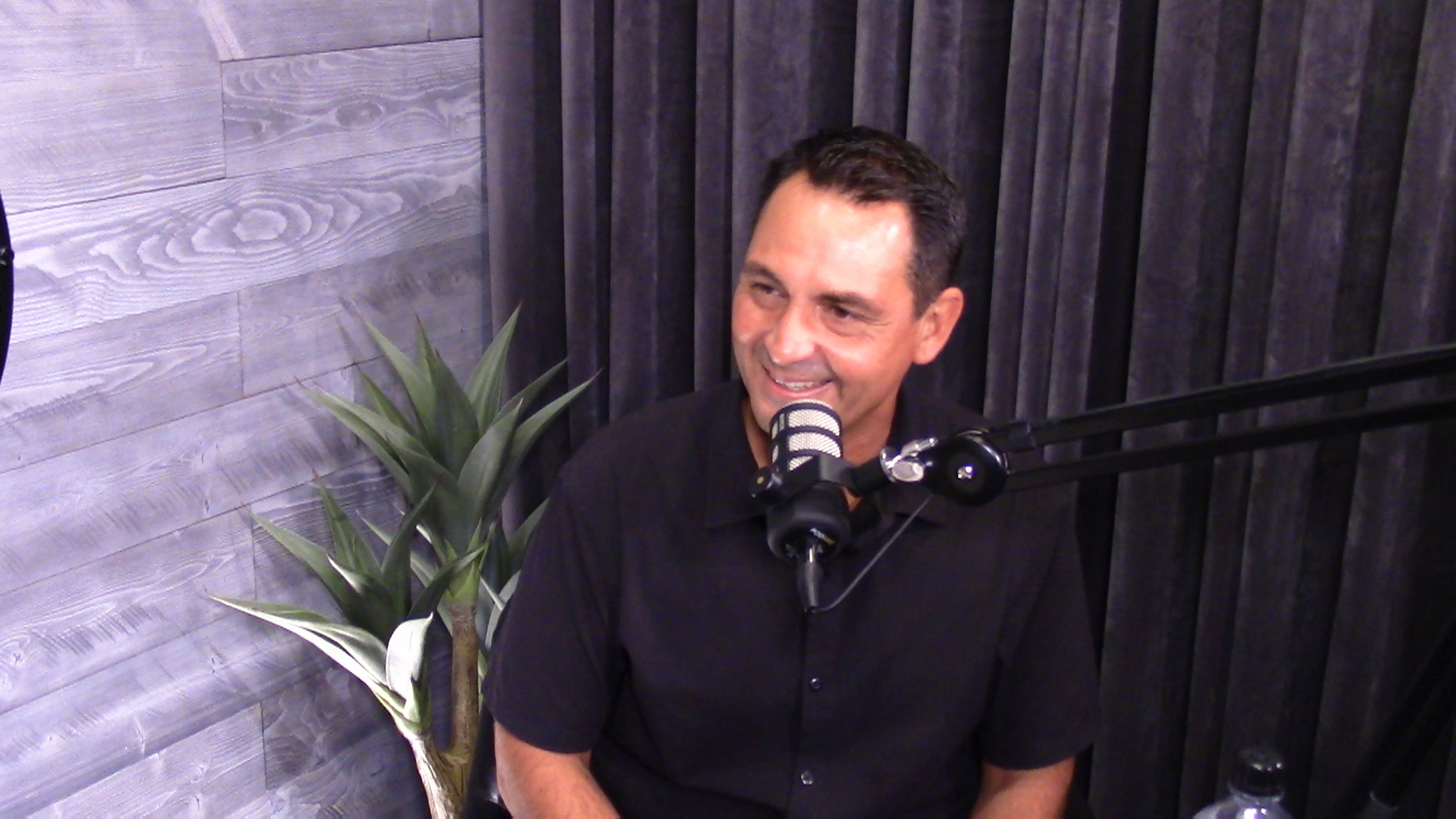

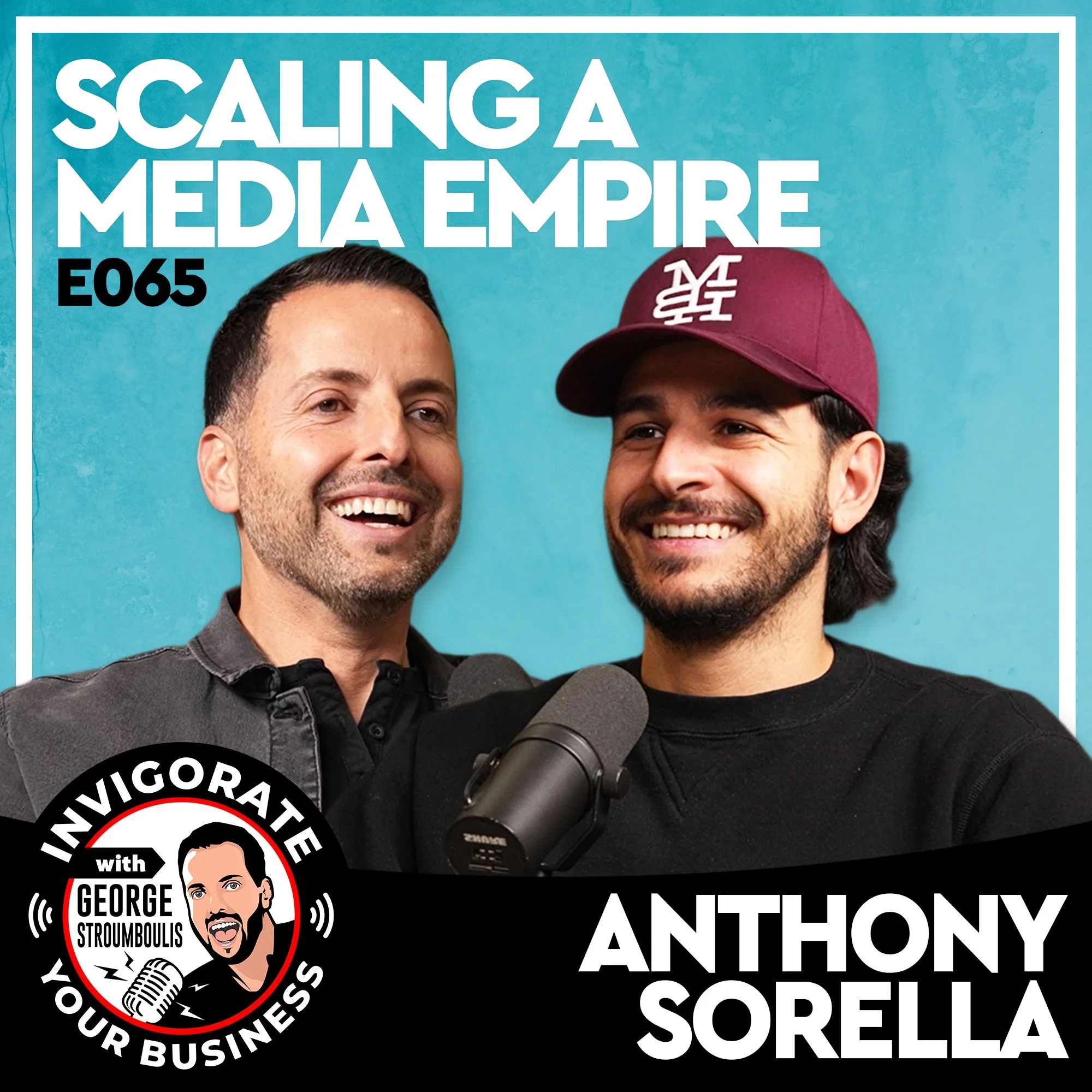
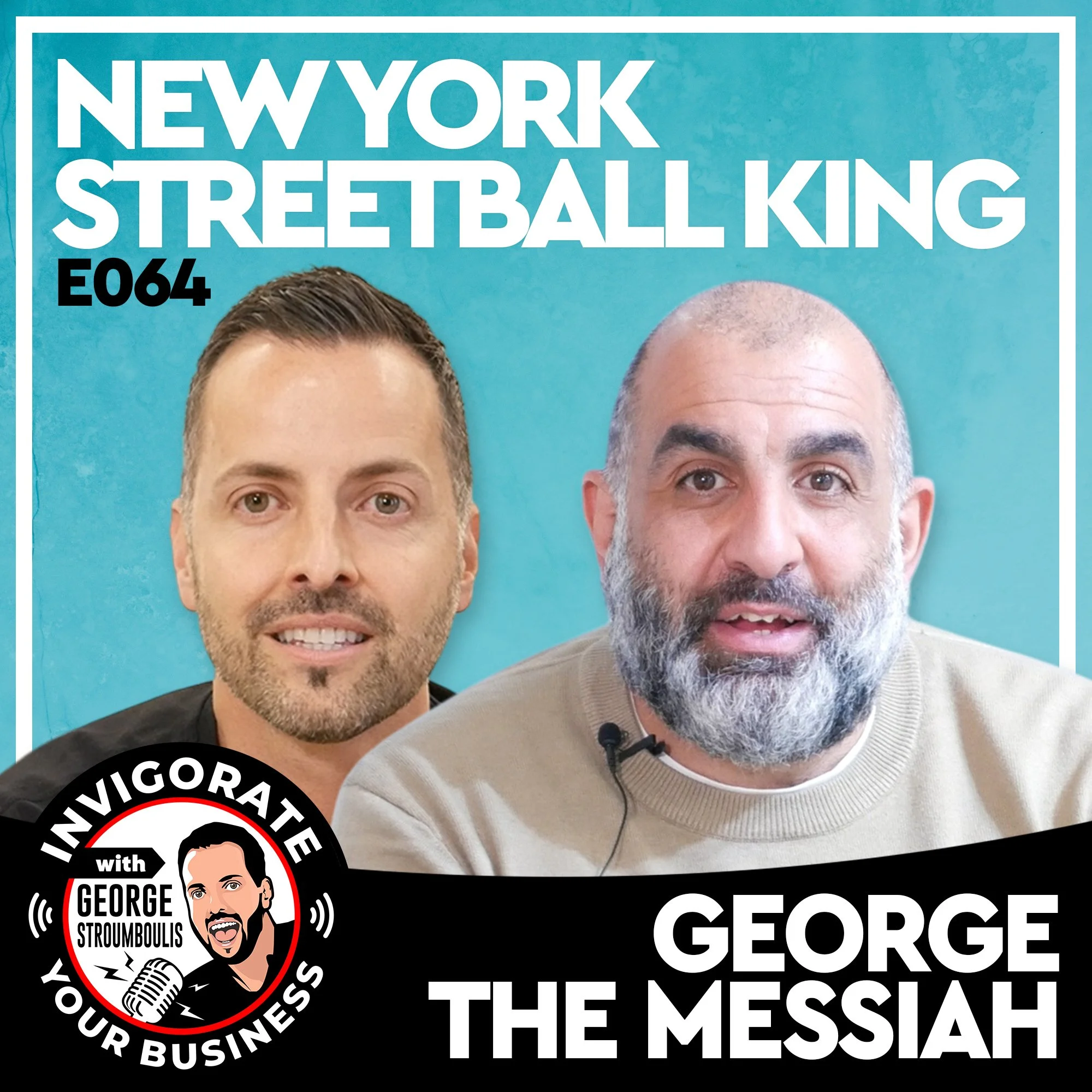
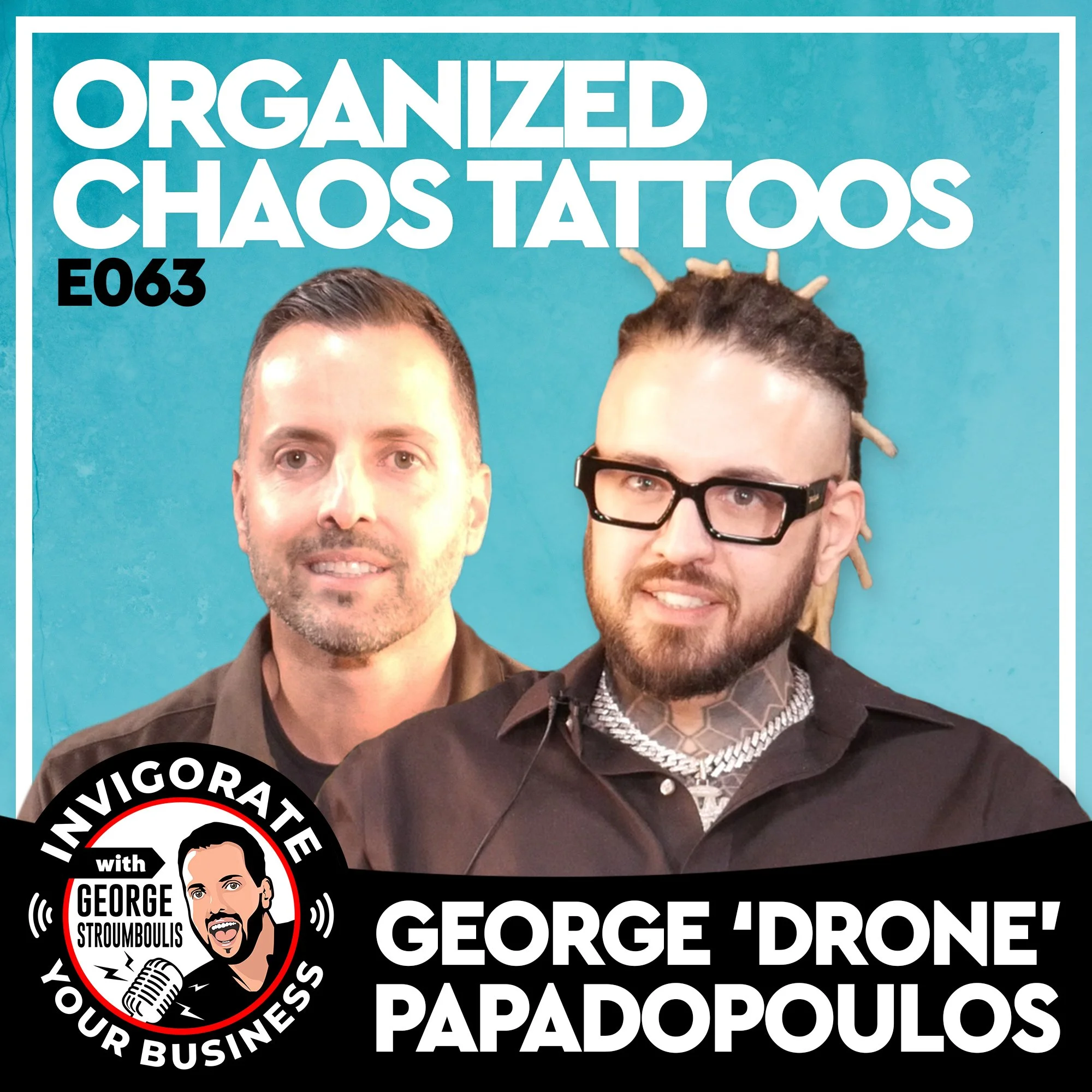

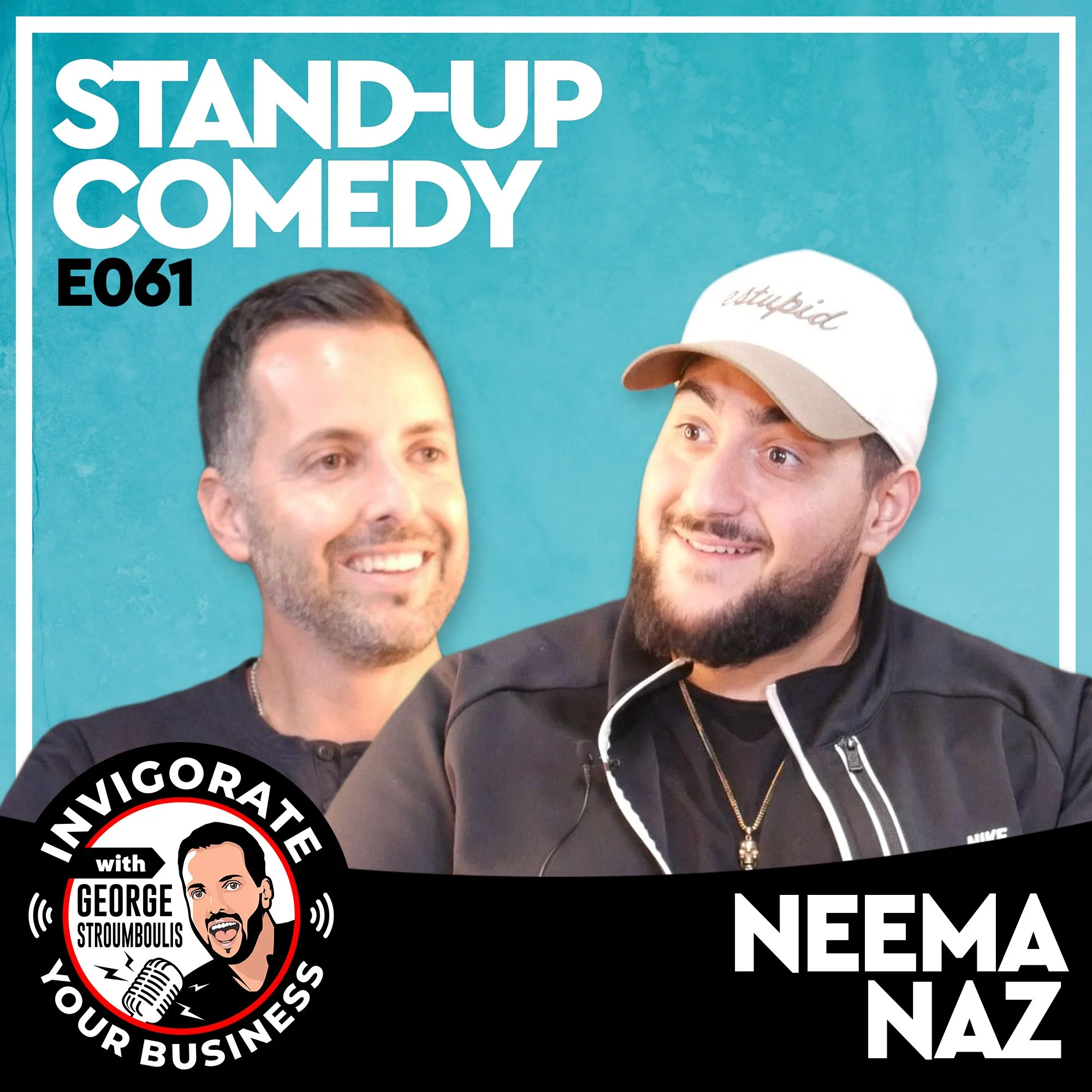
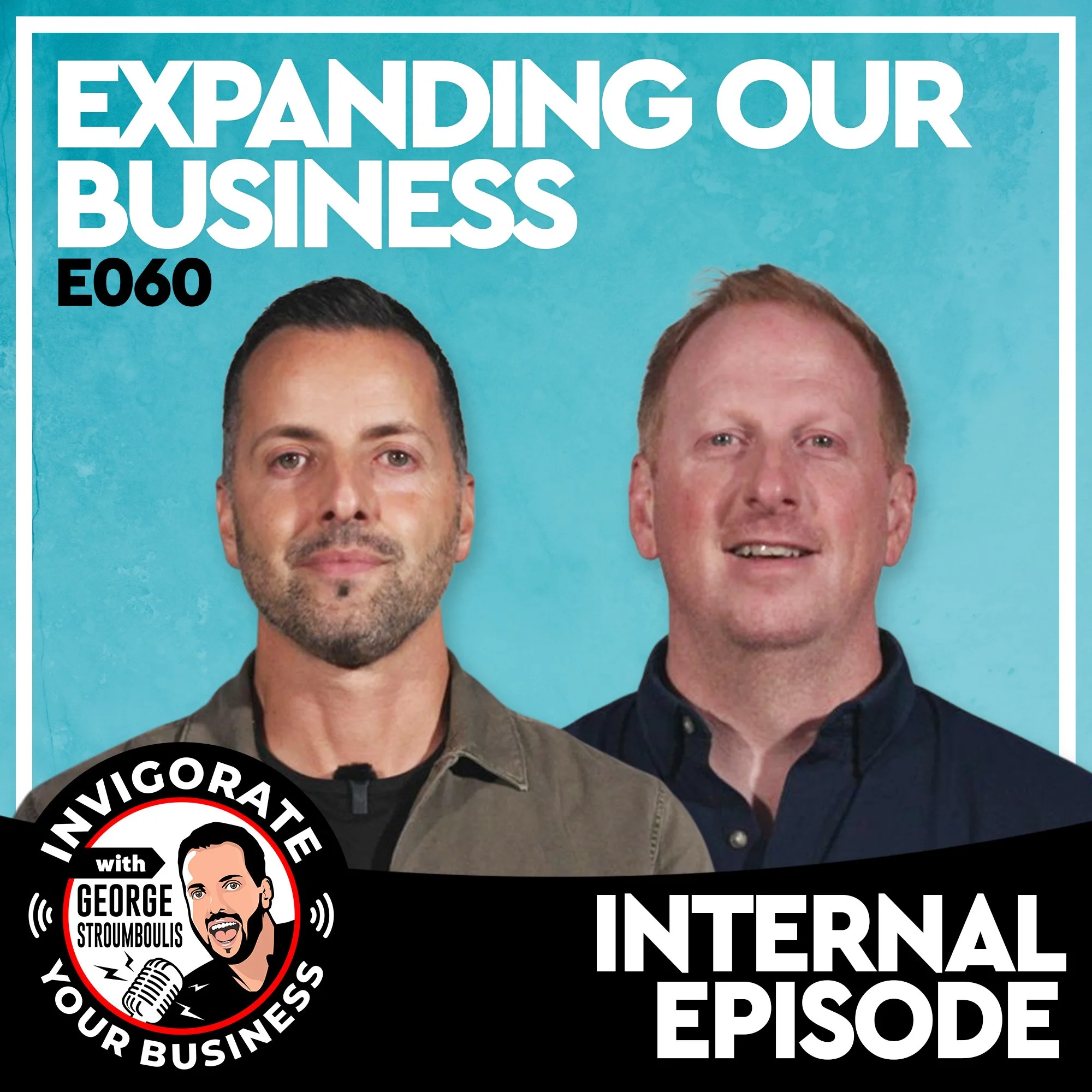

George Stroumboulis sits down with Chris VandenBos — former Canadian police officer, CPTED consultant, and co-founder of Blue Line Home Protection. They dive into his path into policing, what he witnessed firsthand on the force, the deterioration of public safety in Canada, and why he shifted his focus from enforcement to prevention.